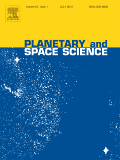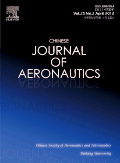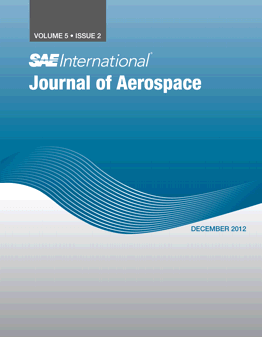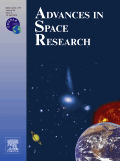
JOURNAL OF THE ASTRONAUTICAL SCIENCES
metrics 2024
Advancing Knowledge in Aerospace and Planetary Sciences
Introduction
JOURNAL OF THE ASTRONAUTICAL SCIENCES, published by Springer Heidelberg, serves as a leading platform dedicated to advancing the fields of aerospace engineering and planetary science. With an ISSN of 0021-9142 and an E-ISSN of 2195-0571, this journal has established a significant presence within the academic community, evidenced by its categorization in the Q2 and Q3 quartiles for 2023, positioning it among the top publications in its field. The journal encompasses a spectrum of research that spans from innovative aerospace technologies to the exploration of planetary systems, reflecting its rich scope developed since its inception in 1969. Although not Open Access, it provides vital contributions to ongoing discussions in aerospace research, appealing to researchers, professionals, and students eager to deepen their understanding of astronautics. With a notable impact factor and rankings in Scopus—66th in Aerospace Engineering and 64th in Space and Planetary Science—this journal continues to be a pivotal resource for those engaged in the exploration and utilization of space.
Metrics 2024
 0.63
0.63 1.20
1.20 1.60
1.60 50
50Metrics History
Rank 2024
Scopus
IF (Web Of Science)
JCI (Web Of Science)
Quartile History
Similar Journals

PLANETARY AND SPACE SCIENCE
Unlocking the Universe: Insights into Planetary Bodies and BeyondPLANETARY AND SPACE SCIENCE is a leading journal dedicated to the interdisciplinary field of astral studies, encompassing both planetary science and the exploration of space. Published by PERGAMON-ELSEVIER SCIENCE LTD in the United Kingdom, this journal has been pivotal since its inception in 1959, continually contributing to advancements in research about planetary bodies, their atmospheres, and the broader cosmic landscape. With an impressive impact factor, PLANETARY AND SPACE SCIENCE ranks in the second quartile of Astronomy and Astrophysics and the third quartile in Space and Planetary Science as of 2023, showcasing its scholarly significance. The journal aims to provide a platform for the dissemination of cutting-edge research, emphasizing the critical role of space exploration and planetary studies in understanding our universe. Researchers, professionals, and students alike are encouraged to explore the wealth of knowledge presented in its pages, fostering a deeper comprehension of the phenomena that shapes both our solar system and beyond.

Journal of Aeronautics Astronautics and Aviation
Connecting Scholars and Practitioners in Aeronautics and AviationJournal of Aeronautics Astronautics and Aviation, published by the Aeronautical & Astronautical Society Republic of China, is a premier scholarly journal dedicated to advancing knowledge in the dynamic fields of aerospace engineering and space sciences. Operating under the ISSN 1990-7710, this journal plays a pivotal role in disseminating innovative research and practice-oriented studies that address both theoretical and applicative aspects of aeronautics and astronautics. With an impressive history spanning from 2006 to 2024, the journal has established itself as a valuable resource for researchers, professionals, and students alike, featuring contributions that reflect the latest developments and trends within the industry. In the latest rankings, it holds a Q3 classification in Aerospace Engineering and Q4 in Space and Planetary Science, indicating its growing influence despite its niche scope. With an open access model that facilitates widespread readership, the Journal of Aeronautics Astronautics and Aviation strives to foster collaboration and knowledge sharing in these ever-evolving scientific domains.

Space Science and Technology-Kosmicna Nauka i Tehnologia
Connecting minds for a brighter future in space exploration.Space Science and Technology-Kosmicna Nauka i Tehnologia is an esteemed journal dedicated to advancing knowledge in the fields of Aerospace Engineering and Space and Planetary Science. Published by the well-regarded PUBLISHING HOUSE AKADEMPERIODYKA in Ukraine, this journal serves as a vital platform for researchers, professionals, and students to share groundbreaking findings and innovative technologies related to space exploration and engineering techniques. Since its establishment in 2019, Space Science and Technology has contributed significantly to the academic discourse in its category, currently holding a Q4 quartile ranking in both Aerospace Engineering and Space and Planetary Science as of 2023. Although it does not offer open-access publication, its listed ISSN (1561-8889) and E-ISSN (2518-1459) ensure wide accessibility to its published content. As the journal continues its journey from 2019 to 2024, it strives to enhance its impact and H-index while fostering collaboration and knowledge dissemination across the global space science community.

Chinese Journal of Aeronautics
Connecting scholars to the skies of tomorrow.Chinese Journal of Aeronautics, published by Elsevier Science Inc, serves as a premier platform for cutting-edge research in the field of aerospace and mechanical engineering. With an impressive impact factor that reflects its significant contribution to the discipline, this Open Access journal has been disseminated globally since 2002, allowing unrestricted access to high-quality articles and research findings. The journal is recognized for its exceptional ranking, holding a prestigious Q1 category in both Aerospace Engineering (Rank #8/153, 95th percentile) and Mechanical Engineering (Rank #46/672, 93rd percentile) as of 2023. It publishes original research, reviews, and technical notes that enhance our understanding of aeronautics and its applications, making it an essential resource for researchers, professionals, and students alike. Located in New York, USA, the journal continues to foster innovation and collaboration in aeronautical sciences, shaping the future of aviation and space exploration.

SAE International Journal of Aerospace
Exploring New Frontiers in Aerospace Research.The SAE International Journal of Aerospace, published by SAE International, serves as a critical platform for innovative research and advancements within the field of aerospace engineering. With an ISSN of 1946-3855 and an E-ISSN of 1946-3901, this esteemed journal contributes significantly to the body of knowledge in the aerospace sector, boasting a convergence span from 2008 to 2024. While currently categorized in Q4 of Aerospace Engineering, the journal is dedicated to fostering emerging ideas, technologies, and methodologies that could eventually elevate its standing. Although it does not offer open access options, the journal ensures wide dissemination of its well-curated articles to aid researchers, professionals, and students in staying abreast of the latest developments and trends. Given its distinct focus and commitment to the aerospace community, the SAE International Journal of Aerospace plays an essential role in bridging theory and practice, making it a valuable resource for those within this vital and evolving field.

Chinese Space Science and Technology
Inspiring the Next Generation of Space ExplorersChinese Space Science and Technology is a pivotal journal dedicated to advancing the field of space engineering and technology, published by the esteemed Chinese Academy of Space Technology. With an ISSN of 1000-758X, this publication serves as a significant platform for cutting-edge research from China and around the globe, spanning vital intersections of Aerospace Engineering, Electrical and Electronic Engineering, and Materials Science. As evidenced by its Q3 ranking in 2023 across these categories, the journal consistently showcases innovative studies that contribute to the development of space technology, thereby impacting both theoretical frameworks and practical applications in the industry. Researchers and professionals will find valuable insights within its pages, while students can enrich their educational journey through its wealth of knowledge. Though primarily published in print, the journal continues to foster collaboration and engagement among the academic community, offering a glimpse into the future of space exploration and technological advancements through its relevant and timely content.

ADVANCES IN SPACE RESEARCH
Connecting Disciplines to Illuminate the Heavens.ADVANCES IN SPACE RESEARCH, published by Elsevier Science Ltd, is a leading journal in the fields of Aerospace Engineering, Astronomy and Astrophysics, Atmospheric Science, and more. Since its inception in 1981, this journal has dedicated itself to the dissemination of high-quality research contributing to the understanding of space and planetary sciences through a multidisciplinary lens. With an impressive impact factor reflected in its positioning within the Q1 and Q2 quartiles across various categories, it serves as an essential resource for researchers and professionals alike. The journal's rigorous peer review process ensures that only the most relevant and groundbreaking studies are published, making it a cornerstone for those navigating the complexities of space research. The journal is accessible by subscription, inviting a global readership to engage with trailblazing research that influences future advancements and fosters collaborations across the scientific community. With a reputation for excellence, ADVANCES IN SPACE RESEARCH remains committed to pushing the boundaries of knowledge in the ever-evolving field of space exploration.

Solar-Terrestrial Physics
Illuminating the Complex Dance of Solar and Terrestrial ForcesSolar-Terrestrial Physics is a pivotal Open Access journal dedicated to advancing the understanding of the complex interactions between solar and terrestrial phenomena. Published by the NAUCNO-IZDATELSKIJ CENTR INFRAM in the Russian Federation, this journal has established itself as a significant platform for disseminating cutting-edge research within the fields of Atmospheric Science, Geophysics, and Space and Planetary Science. Since its transition to Open Access in 2017, it has bolstered academic accessibility, fostering the dissemination of knowledge to a global audience. With its current category quartiles ranking Q4 in Atmospheric Science and Q3 in both Geophysics and Space and Planetary Science, it actively contributes to the scholarly dialogue essential for innovation and research development. Researchers and practitioners can submit their work with ease, knowing their contributions will reach an engaged audience. The journal is an essential resource for those focused on exploring the dynamics of solar-terrestrial relationships, critical for understanding broader planetary systems.

CEAS Space Journal
Connecting research and innovation in the realm of space.CEAS Space Journal, published by SPRINGER WIEN, serves as a critical platform for advancing knowledge in the fields of aerospace engineering and space science. With an ISSN of 1868-2502 and an E-ISSN of 1868-2510, this journal has been at the forefront of scholarly communication since its inception in 2011, showcasing cutting-edge research that spans to the present day (2024). The journal holds a solid reputation, ranking in the Q2 quartile for Aerospace Engineering and Q3 for Space and Planetary Science as of 2023, illustrating its impactful contributions within these disciplines. Scopus rankings further underline its prominence, placing it in the 70th percentile among aerospace engineering journals. Although it is not an open access publication, the insights published in the CEAS Space Journal are invaluable for researchers, professionals, and students alike, providing essential studies and reviews that push the boundaries of aerospace innovation and planetary exploration. The journal's commitment to quality and rigor makes it an indispensable resource for anyone looking to deepen their understanding of contemporary challenges and technological advancements in space science.

Advances in Aircraft and Spacecraft Science
Advancing Technologies that Propel Aviation and SpacecraftAdvances in Aircraft and Spacecraft Science is a distinguished journal published by TECHNO-PRESS, focusing on the rapidly evolving fields of aerospace engineering and fluid dynamics. With an ISSN of 2287-528X and an E-ISSN of 2287-5271, this journal is an invaluable resource for researchers, professionals, and students dedicated to advancing knowledge in aircraft and spacecraft technologies. Established in 2014, the journal is committed to disseminating high-quality research findings and innovative methodologies, ensuring that cutting-edge studies can be accessed globally. Despite its current position in the Q4 category for both aerospace engineering and fluid flow transfer processes, it continues to carve a niche in the academic landscape, with Scopus rankings highlighting its contribution to these fields. Operating from South Korea, Advances in Aircraft and Spacecraft Science aims to inspire collaboration and knowledge-sharing among scholars, fostering advancements that drive the aerospace industry forward.